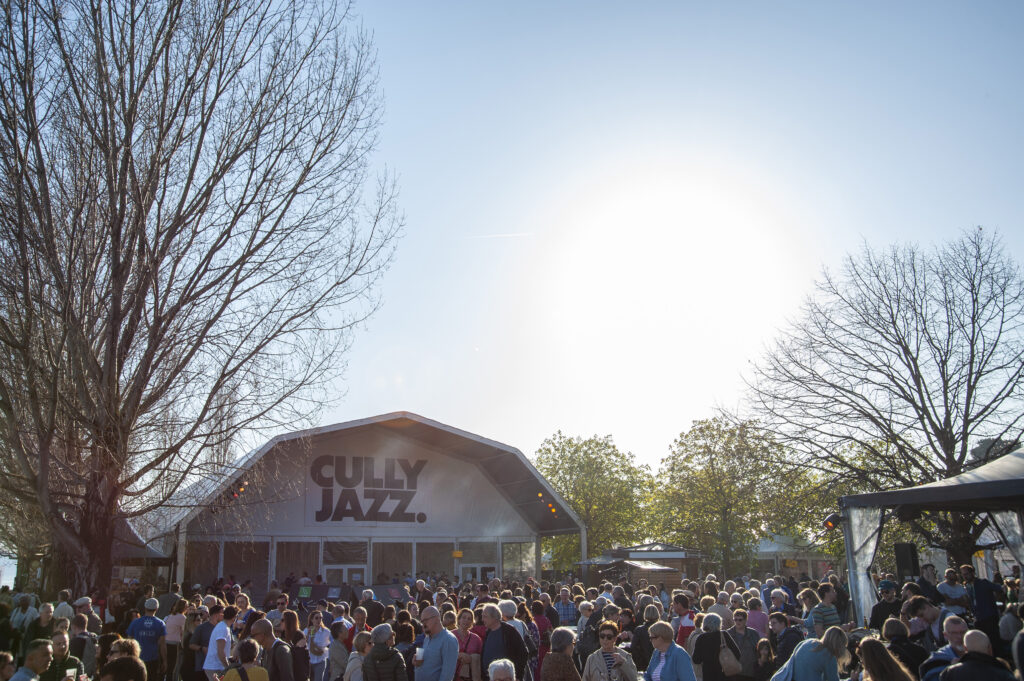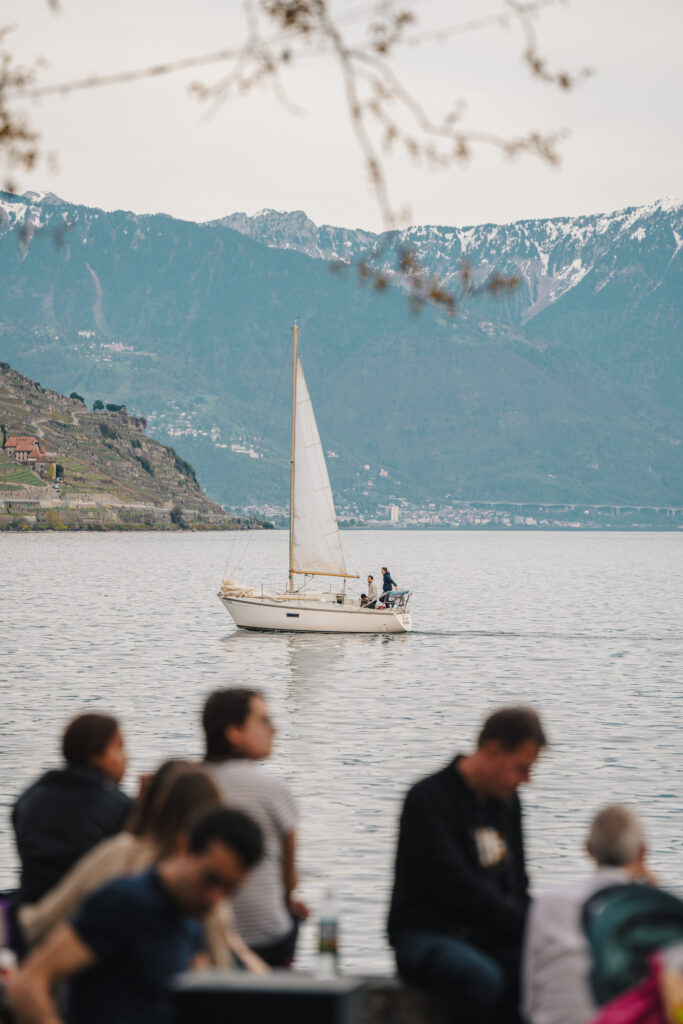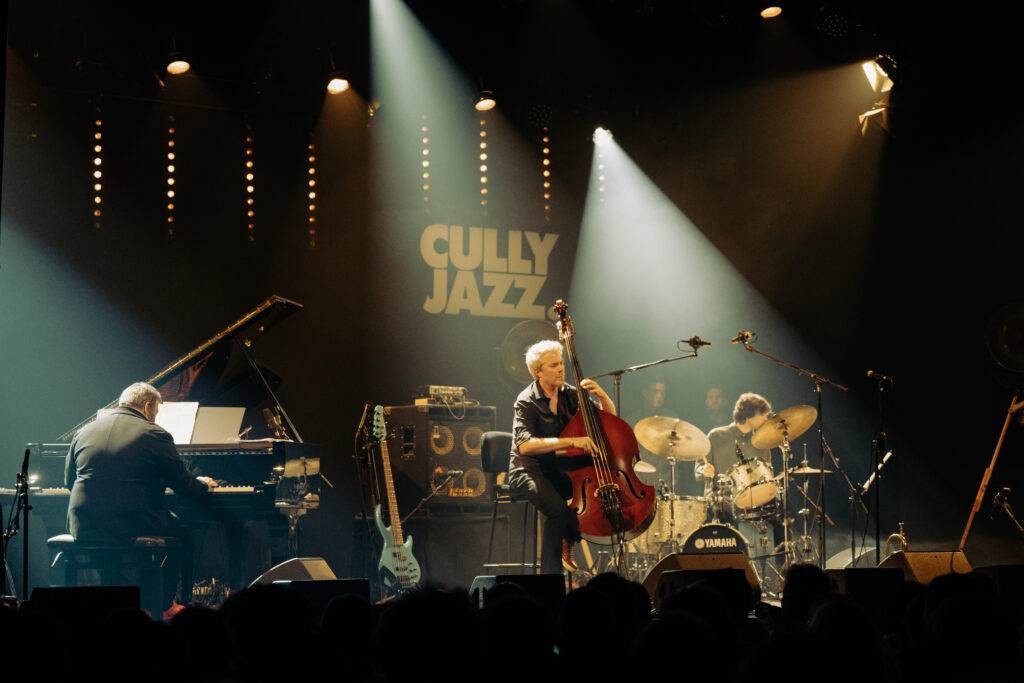The Cully Jazz Festival is the must-attend musical event of the spring in the french part of Switzerland. For eight days, the village of Cully pulses to the rhythm of jazz, set against the unique backdrop of the Lavaux region. Jazz, R’n’B, soul, and traditional music from around the world come together in a warm and eclectic atmosphere, from intimate cellar venues to large stages. The 43rd edition will take place from April 10 to 18, 2026.
For over 40 years, the Cully Jazz Festival has remained true to the values that make it a success: the quality of its musical programming, the dedication of its volunteers, and the loyalty of its audience — all made possible by a stunning natural setting and a warm welcome. Curious and enthusiastic, the public answers the call of the artists and organizers year after year.


